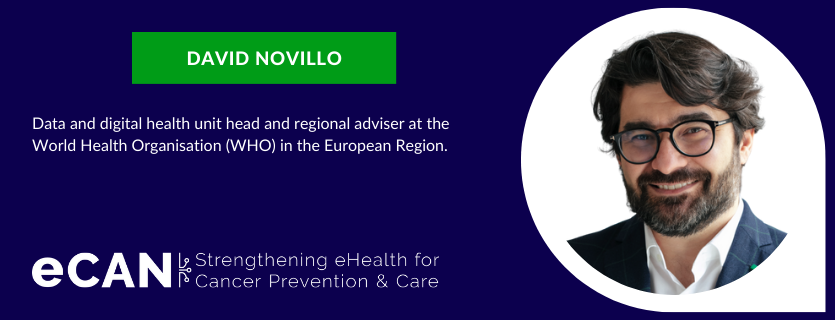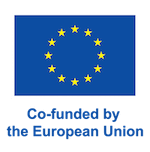INTERVIEW
“Digital health tools are more commonly used in urban areas, among young individuals with white ethnic origins, English speakers, those with higher levels of education, and individuals with higher economic status”.
The question on how digitalisation can be effectively used for improving public healthcare is not new and has been tackled thousand times by those who are in charge of making it possible. Much less often, policymakers have been able to provide answers that can actually be translated into real actions, because innovation means “new”, and all new things require practice and failure in order to success.
David Novillo, data and digital health unit head and regional adviser at the World Health Organisation (WHO) in the European Region, is one of these people that tries to shed light into digital health, the future of healthcare systems and the challenges all EU region countries should address in order to do better.
Question: What do we understand by digital health in the present days?
Answer: To put it simply, digital health is all about using digital technologies to make people healthier. Initially, it was called health informatics, telemedicine, eHealth or digital health. However, now we talk about digital transformation in health. This shift in terminology makes it harder to explain what exactly we mean when we say “digital health.” But in a nutshell, it refers to using digital technologies on a large scale to improve people’s health.
And what does digital health aim to become?
In the past, we used terms like eGovernment and eHealth, where the ‘e’ represented the use of digital technologies. But in the future, the ‘e’ will no longer be necessary. It will become commonplace to talk about providing health services with the support of digital solutions without explicitly mentioning how these services are provided.
What are the main technical and ethical challenges in the European Region to implement digital health in national healthcare systems?
We face several specific challenges when it comes to digital health. One of them is that decision makers have different interpretations of what digital health actually means.
While I may have a broad understanding, a Minister of Health may view it only as electronic record-keeping. This different understanding is a challenge because our limited time for productive discussions on digital health is often spent clarifying the concept itself. And although digital health is mentioned in policymakers’ speeches, the actual investments made do not always reflect this.
The second challenge is the lack of long-term vision and consistent funding for digital health. It’s crucial for us to invest in this field and have a forward-thinking perspective, as implementing technology in the healthcare sector typically requires at least 5 to 10 years. This can be difficult for governments, who are typically in power for shorter terms of around five or six years.
In addition, before focusing on digital infrastructure, countries need to establish governance, legislation, and policies. We sometimes overlook the fact that it is more important to have robust mechanisms for governance, legal frameworks, and policies in place before implementing digital solutions, rather than just having connectivity, computers, or interoperability. We need to ensure the secure transmission of data and protect the rights of patients and doctors, through proper laws because innovation is always ahead of legislation, and that’s an important challenge in digital health.
What about the other two challenges?
The fourth challenge we encounter is the lack of data to make informed decisions regarding digital health. Many countries are investing heavily in digital solutions, but we should ask ourselves: what data are these investments based on? Are epidemiological data indicating a need for these digital solutions? From my perspective, we should first identify our needs and then implement digital solutions that help address specific barriers and problems. It is crucial that every decision is supported by data rather than relying on intuition or a sense that something will work. The final challenge is the insufficient involvement of end users—such as patients and health workers—in the design of digital health solutions. We saw this during the Covid-19 pandemic, where numerous apps were developed worldwide but not all of them were successful. The success of some of these experiences can be attributed to the active involvement of end users. Surprisingly, even in 2023, this remains a challenge.
Including end users is not only a practical matter but also an ethical one. We must prioritize the protection of patients at all costs. During the pandemic, we saw some challenges concerning the use of contact tracing apps, as they were sometimes used to monitor populations in ways that raised ethical concerns. While this may not have been widespread, it shows the importance of ethical practices and the need for careful consideration in the use of these technologies.
In the present days, how is digital health translated into patients’ daily care?
There are many practical ways in which digital solutions are directly impacting patients’ lives. First, there is improved access to health information. Through digitalization, patients can now access and utilize health information, empowering themselves to make informed decisions about their health.
Second, we have seen a wider use of devices to collect data, sending it to health providers for analysis and monitoring.
At the same time, digital tools have facilitated follow-up consultations. Patients can now have medical appointments with their doctors remotely, using digital solutions. This eliminates the need for physical visits and allows for more convenient and efficient healthcare access.
Another notable development is the introduction of ‘ePrescriptions’. Patients now have access to electronic records, and they can go directly to the pharmacy to pick up their prescribed medications without the requirement of visiting primary health facilities solely to collect a paper prescription. This streamlined process has a significant impact on patients by reducing unnecessary steps and improving convenience.
Sometimes we don’t want to talk about regulations and instead want to end to focus on exciting innovations like Chat GPT and other technological advancements. But we need to conduct a reality check, especially in rural and remote areas, where basic healthcare needs must be addressed rather than solely focusing on cutting-edge innovations.
What do you think EU countries should prioritize in order to integrate digital health in their health care systems?
Undoubtedly, one of the key elements needed in digital health is appropriate legislation and regulation. While technology and governance can be implemented, regulations are often time-consuming and expensive to develop.
In my personal experience, I have encountered situations where we were assisting a country in digitizing health records, only to discover that the existing laws explicitly protected “paper-based” records.
Sometimes we don’t want to talk about regulations and instead want to end to focus on exciting innovations like Chat GPT and other technological advancements. But we need to conduct a reality check, especially in rural and remote areas, where basic healthcare needs must be addressed rather than solely focusing on cutting-edge innovations. Ensuring that legislation and regulation align with the digitalization of health services is crucial for effective implementation and protection of patient data.
Now that you’ve mentioned remote and rural areas, I would like to talk about inequalities. Is there a roadmap that we can follow in order to guarantee equal access to digital tools? What are the core principles of it?
First, it’s important to acknowledge that the Covid-19 pandemic has accelerated the digitalisation of society, which is one of the few positive outcomes we’ve witnessed. However, we must also recognize that approximately 34% of the global population still lacks access to the internet, with only 45% of people in developing countries having internet connectivity.
Recently, WHO published a report on digital solutions and inequalities. Our findings consistently show that digital health tools are more commonly used in urban areas, among young individuals with white ethnic origins, English speakers, those with higher levels of education, and individuals with higher economic status.
To address these disparities, it is crucial that we gather evidence on effective ways to improve knowledge, skills, and confidence in using digital health technologies among those who need them the most. We also need to understand how factors such as socioeconomic status and ethnic origin intersect and contribute to these disparities. How are these features interrelated and what is the real picture at the global level? How are we going to use inclusive and participatory designing approaches? When we involve people in the design of these digital solutions, we are actually contributing to closing the gap in health inequalities.
The Regional digital health action plan for the WHO European Region 2023–2030 and eCAN share the goal of strengthening digital health in healthcare systems. What are the main strategies from the regional plan that eCAN can look at for its project?
In our action plan, we have identified four strategic objectives that guide our efforts.
The first one is about setting norms and providing technical guidance. It is crucial for us to create documents that provide concrete advice to member states on digital health. The second objective focuses on supporting countries directly and promoting digital health literacy. This involves supporting countries in developing or improving their digital health policies, or at least ensuring that a digital health component is part of an overall national health policy or strategy. We also strive to enhance digital literacy skills among patients and health workers.
The third objective is all about networking and sharing knowledge. In this era in which costs can be high, we need to be more open about what is not working, so that countries can learn from one another and learn from previous mistakes.
In addition, at WHO we emphasize the collaboration between the public and private sectors. In this field, progress is nearly impossible without the involvement of the private sector. The government and public sector should define their needs, and the private sector should provide the necessary solutions, and not the other way around.
Finally, we prioritize horizon scanning and scaling up successful initiatives. We identify what works well in certain countries and aim to replicate those experiences in other countries, expanding the positive impact of digital health solutions.
eCAN will conduct three pilot projects for studying telemedicine and teleconsultation in cancer patients. How can these pilots become an example to look at when it comes to developing future action plans?
When undertaking pilot projects, it’s crucial to involve users, learn from previous experiences, and have open discussions about successes and lessons learnt.
Then, when you have all that, it’s important to document the project, which is something we often overlook. When we document pilot projects, we can share the positive outcomes with others and explain what didn’t work so well. I’m sure that we can take inspiration from this project and apply them to other countries in the future.
![]() Co-funded by the European Union. Views and opinions expressed are however those of the author(s) only and do not necessarily reflect those of the European Union or HaDEA. Neither the European Union nor the granting authority can be held responsible for them.
Co-funded by the European Union. Views and opinions expressed are however those of the author(s) only and do not necessarily reflect those of the European Union or HaDEA. Neither the European Union nor the granting authority can be held responsible for them.



